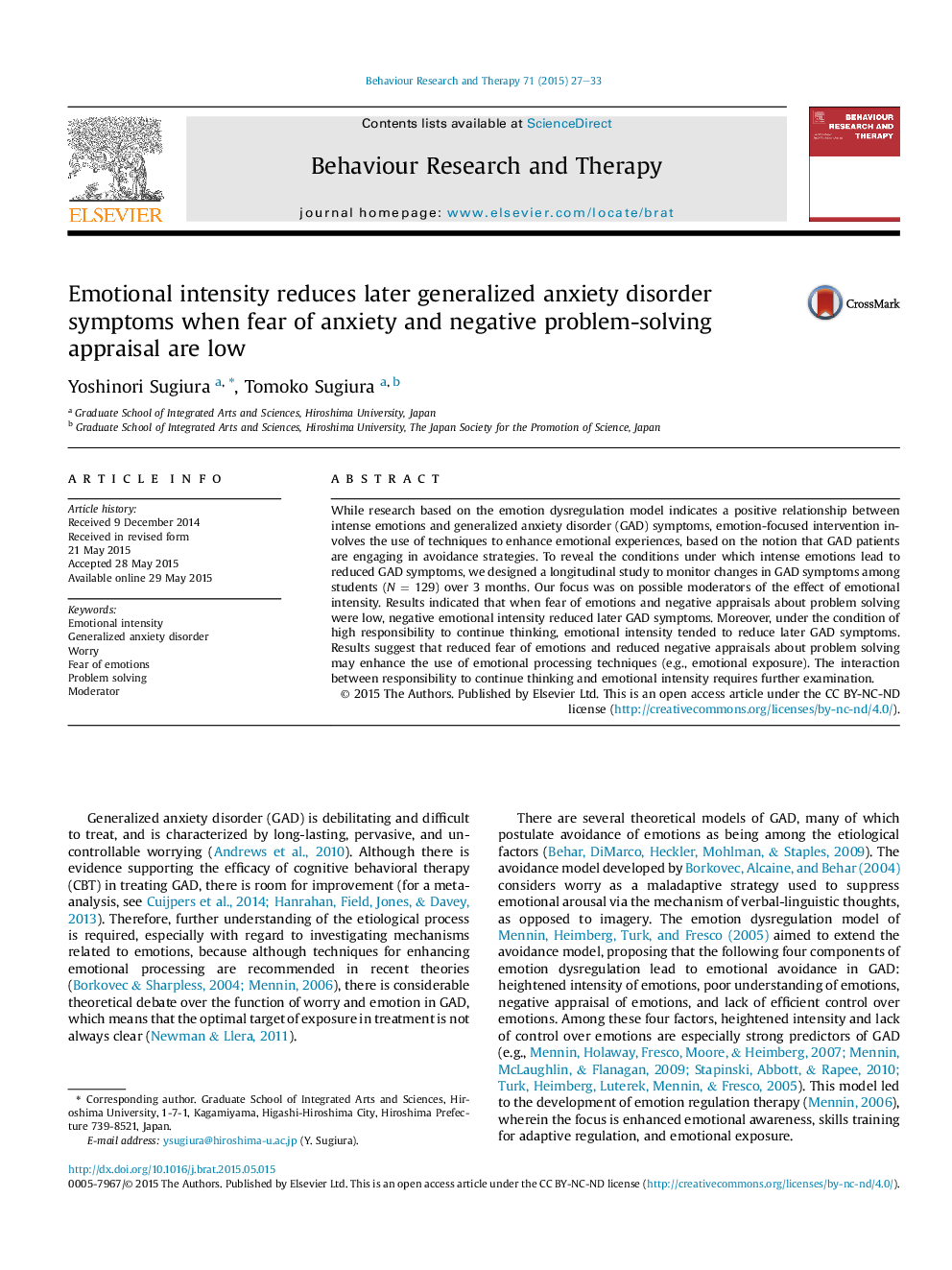| Article ID | Journal | Published Year | Pages | File Type |
|---|---|---|---|---|
| 7262294 | Behaviour Research and Therapy | 2015 | 7 Pages |
Abstract
While research based on the emotion dysregulation model indicates a positive relationship between intense emotions and generalized anxiety disorder (GAD) symptoms, emotion-focused intervention involves the use of techniques to enhance emotional experiences, based on the notion that GAD patients are engaging in avoidance strategies. To reveal the conditions under which intense emotions lead to reduced GAD symptoms, we designed a longitudinal study to monitor changes in GAD symptoms among students (NÂ =Â 129) over 3 months. Our focus was on possible moderators of the effect of emotional intensity. Results indicated that when fear of emotions and negative appraisals about problem solving were low, negative emotional intensity reduced later GAD symptoms. Moreover, under the condition of high responsibility to continue thinking, emotional intensity tended to reduce later GAD symptoms. Results suggest that reduced fear of emotions and reduced negative appraisals about problem solving may enhance the use of emotional processing techniques (e.g., emotional exposure). The interaction between responsibility to continue thinking and emotional intensity requires further examination.
Related Topics
Health Sciences
Medicine and Dentistry
Psychiatry and Mental Health
Authors
Yoshinori Sugiura, Tomoko Sugiura,
